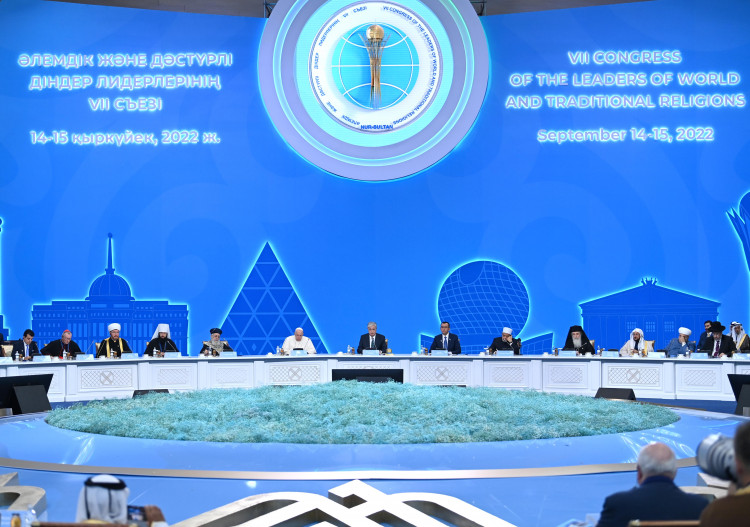
20 August 2025
By: Dr. Asadullah Karimov, Director General for South Africa and Kazakhstan Trading and Cultural Association, Pretoria, South Africa
This September, Astana will once again become the center of global interfaith dialogue as it hosts the VIII Congress of Leaders of World and Traditional Religions. Scheduled for 16–18 September 2025, the forum will gather more than 100 delegations from around 60 countries, uniting spiritual leaders, heads of international organizations, scholars, and representatives of public life under the theme “Dialogue of Religions: Synergy for the Future.”
A Unique Global Platform
Established in 2003 at the initiative of Kazakhstan, the Congress has evolved into one of the world’s most respected platforms for interreligious and intercultural dialogue. Unlike other conferences tied to specific regions or denominations, this triennial gathering is deliberately inclusive. It brings together representatives of Islam, Christianity, Judaism, Buddhism, Hinduism, Taoism, and other traditional faiths, alongside secular experts and policymakers.
Through its institutional bodies—the Secretariat, the Council of Religious Leaders, and the International Center for Interfaith and Interreligious Dialogue—the Congress has developed into a permanent mechanism of spiritual diplomacy. It ensures that discussions in Astana translate into continuous cooperation and concrete initiatives between meetings.
The 2025 Agenda
- 16 September – The Congress will open with the XXIII Session of the Secretariat, chaired by the Speaker of the Senate of the Parliament of Kazakhstan and Head of the Secretariat of the Congress, Maulen Ashimbayev. On the same day, a Special Session on Safeguarding Religious Sites, organized under the auspices of the United Nations Alliance of Civilizations, will convene. This gathering will bring together leading religious and political leaders, diplomats, and representatives of international organizations to address global challenges related to threats facing places of worship and sacred heritage sites.
- 17 September – The plenary session of the VIII Congress, chaired by the President of Kazakhstan, Kassym-Jomart Tokayev, will take place. Centered on the theme “Dialogue of Religions: Synergy for the Future,” it will be followed by a series of breakout sessions tackling pressing global issues, including extremism, conflict resolution, climate change, and inequality.
- 18 September – The closing day will host the II Forum of Young Religious Leaders on the theme “Youth for Peaceful Coexistence: Synergy for the Future.” This platform will give the next generation of spiritual leaders an opportunity to present their vision for strengthening interfaith harmony and peaceful coexistence.
In a world where religious differences are too often manipulated to fuel division and conflict, the Congress serves a countervailing purpose. Its significance lies in several key areas: - Peace and Tolerance: By reaffirming shared moral values, the Congress directly addresses the dangers of extremism and intolerance.
- Global Relevance: Previous gatherings have produced declarations that tackled urgent issues, from climate change and inequality to refugee crises and interfaith solidarity.
- Youth Engagement: Involving young leaders ensures sustainability of dialogue and introduces fresh perspectives into interreligious cooperation.
- Kazakhstan’s Diplomacy: Hosting the forum demonstrates Kazakhstan’s unique role as a bridge between East and West, North and South, and positions the country as a hub of spiritual diplomacy.
Observers will be watching closely for the final declaration of the VIII Congress, which is expected to provide a roadmap for interfaith collaboration in the coming years. Particular attention will be given to how the Congress addresses the protection of religious heritage sites, as well as how it frames the role of religions in tackling global crises.
The VIII Congress of Leaders of World and Traditional Religions is more than a ceremonial gathering. It is an active platform for building mutual respect, countering extremism, and shaping a common vision for humanity’s future. In an era of polarization and uncertainty, the Congress offers a rare and powerful example of how dialogue, rather than division, can define international cooperation.
